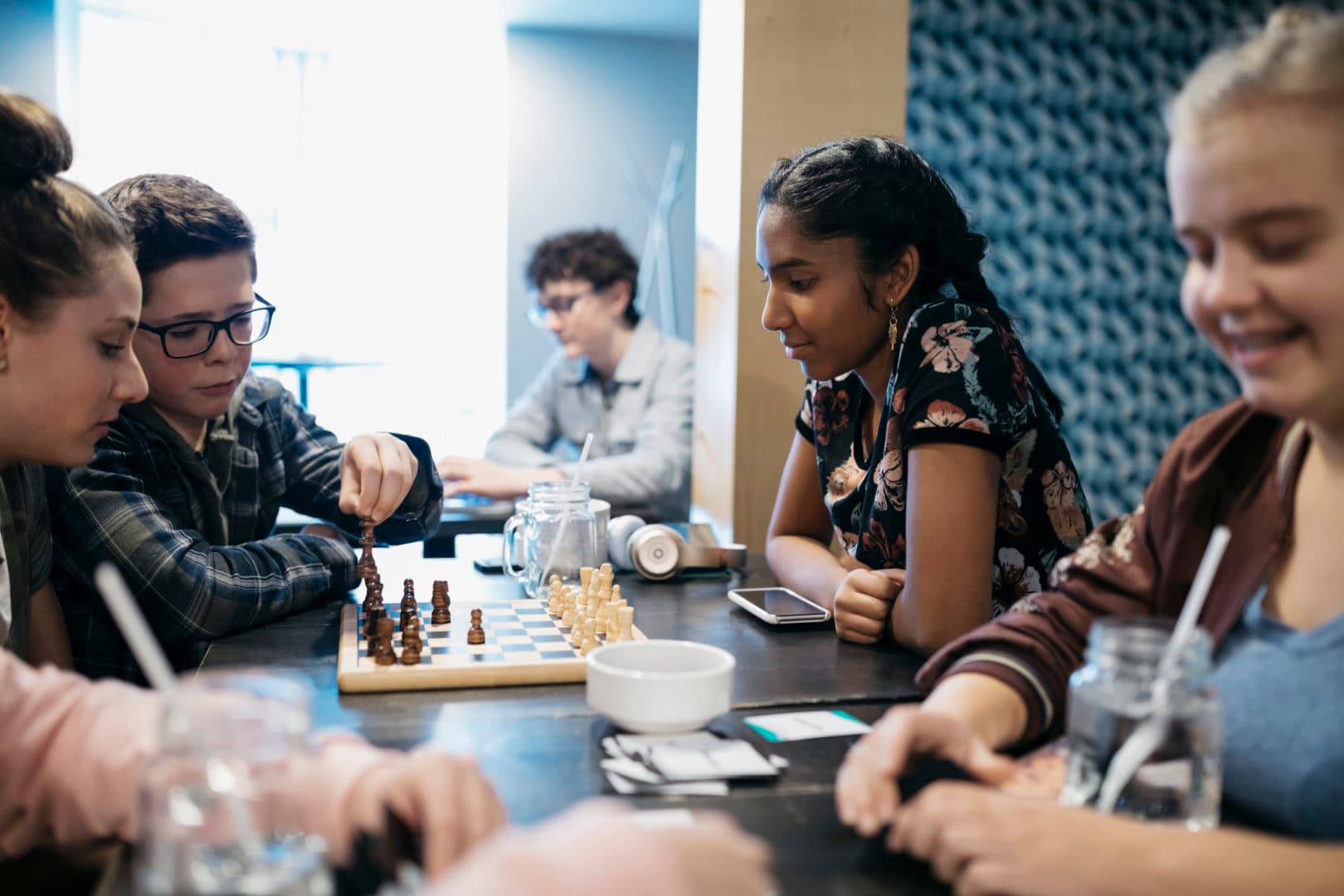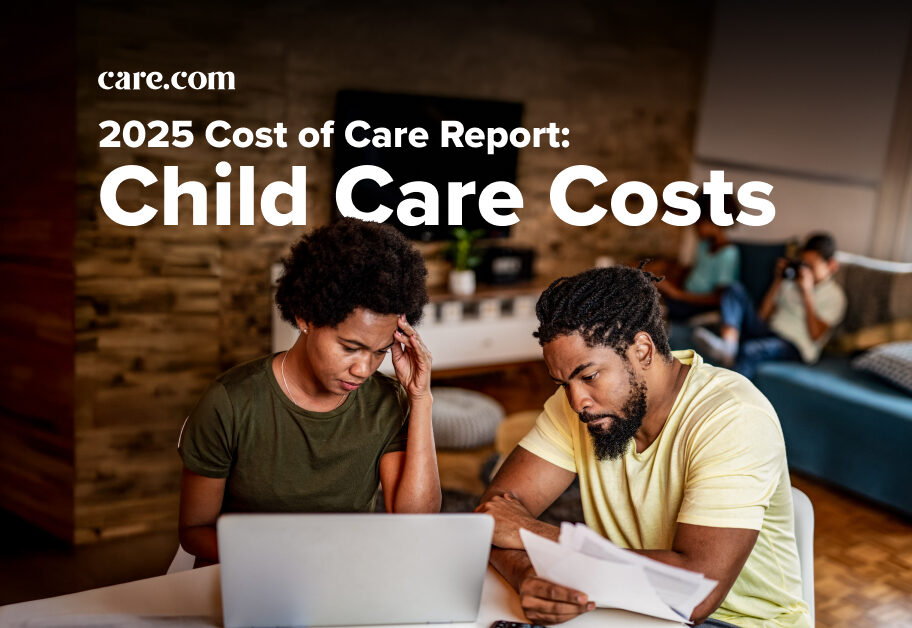Of course, your child can benefit from taking ballet or joining a baseball league after school. (Solid choices, both.) But these days, extracurricular activities are only limited by your imagination. Your child could spend their afternoon learning to felt, for instance, or making cheese, dancing the flamenco or creating their own website — or one for you! School is full of enriching and enlightening lessons, but the best after-school programs can be transformative experiences, too.
“When kids try different things, they increase their skill level, gain confidence and discover new areas of interest,” says Amy Costa, senior program director of the Meadowlands YMCA in East Rutherford, New Jersey, which offers a feast of youth classes from “mini architects” for toddlers to bucket drumming, crochet and video production for older kids and teens.
Plus, she adds, parents appreciate the efforts that “get kids off social media and video games and into a class exposing them to various activities they might not otherwise experience.”
Ready to think out of the box? Here are some of the best after-school programs and activities you might not have known existed.
Outdoor after-school programs
After sitting in school all day, kids — and parents — will likely jump at these opportunities to hang outside.
1. Wilderness survival
The average child spends only four to seven minutes of unstructured play outdoors, according to the Child Mind Institute. Gulp. And it’s not just the fresh air they’re missing out on; research shows that time in nature builds kids’ confidence, teaches responsibility, gives their creativity a boost and can reduce stress.
Trackers Earth, which has locations in Portland, Seattle, Denver and California’s Bay Area, has after-school programs that focus on nature connection and wilderness skills — including blacksmithing and homesteading. The blacksmithing classes are limited to kids grade 5-10, but younger kids can spend their afternoons doing nature arts and crafts (think painting with natural pigments and learning to spin fiber) or honing their fishing, archery and wilderness survival skills.
2. Seed a budding farmer
Have a kid who loves plants, food, working with their hands or all of the above? Farms around the country, from First Generation Farmers in Knightsen, California, to Land’s Sake in Weston, Massachusetts, offer kids the opportunity to be beginner farmers. Depending on where you live and the time of year you sign up, that may involve anything from planting and weeding to maple sugaring, working on irrigation projects, composting or caring for animals.
Online after-school programs
Whether transportation is an issue or your child is interested in a program that’s not available in your town, consider these online programs as an after-school option.
3. Launch a startup business
Starting your own business requires more than coming up with a clever idea. It’s also about collaboration, problem-solving and grit… which is what kids learn at BUILD. Founded in 1999 to help low-income entrepreneurs in East Palo Alto, California, BUILD has since expanded to locations on both coasts — and incubated a whopping 562 youth businesses. In high schools where BUILD is offered, ninth-graders take it as an elective and then continue with it as an after-school program through graduation. The entrepreneurial drive that kids learn can propel them toward success in any sector. BUILD has reached over 55,000 students in over 910 cities digitally, according to their website.
4. Cook something up
Outschool has a massive catalog of online cooking classes for kids and teens. And the best part is, you can get really specific with your search, narrowing down by age, type of cooking, time, live or self-paced and frequency. The classes are all on the affordable side (think $7-22 per class). Keep in mind, though, you do need to buy your own ingredients!
Free after-school programs
After-school programs can get pricey, but these, in some cases, are free to attend.
5. Build Lego robots
When Alina Adams’s son, Gregory, was 7, she let him sit in one day on his big brother’s computer programming lessons. (Adams had won the lessons at her daughter’s preschool auction.)
“I didn’t mean to inspire an all-consuming passion, but that’s what it became,” says the New York City mom.
After Gregory mastered one programming language, he moved on to a host of others. Now 15, he’s been working professionally as a programmer for two years, earning money and picking up valuable life skills, like managing his time and learning to communicate with others along the way.
“I certainly wasn’t looking to put him on a career path, but that’s what he’s currently focused on,” says Adams.
Want to see if your youngster has an appetite for coding? Girls Who Code offers free after-school programs for girls across the country in grades 3-5 and 6-12, emphasizing sisterhood as much as computer coding. And Bricks 4 Kidz, which has locations across the country, offers a number of Lego-inspired robotics classes for kids as young as 5 (not all are free, though).
6. Connect with theater
The Creative Arts Team (CAT) Youth Theatre group in New York City hosts a free after-school program that connects students with various aspects of theater. Geared towards middle- and high-school students, participants play a variety of theater games, including improv-based activities, and put on a show at the end!
Creative after-school activities
Let kids tap into their creative sides with these truly unique after-school options.
7. Play the harp
Piano’s the traditional place to start, but plenty of other instruments may interest your child. Research suggests that learning to play a musical instrument may facilitate kids’ reading and math skills. And sometimes all it takes for a kid to fall in love with an instrument is to be introduced to it.
When Atlanta’s Urban Youth Harp Ensemble first started in 2000, it had just two students. Now, the nonprofit offers classes to 80 students between fourth and 12th grade who regularly play their harps to packed audiences.
8. Design your own clothing
The vision of Workshop Houston? Create a community that gives kids alternative definitions of success. Located in Houston’s Third Ward, where nearly half of all residents live under the poverty level, the nonprofit offers free, unique classes in music production, academic enrichment, dance and theater. There’s even a Style Shop, where kids create their own clothes!
Exercise-based after-school activities
Just because they’re not on the soccer team, doesn’t mean kids can’t have structure activities that are active after school. Consider these break-a-sweat options.
9. Martial arts
When Heidi McBain, of Flower Mound, Texas, realized her son wasn’t getting enough exercise in school, she signed him up for Jiu-Jitsu/kickboxing classes five days a week. Almost immediately, McBain saw a difference.
“Aiden was happier and more focused, and he started bringing home smiley faces from school,” she says.
Two years later, Aiden is still committed to martial arts.“ He likes that he’s always learning new things,” McBain says.
Besides a good workout, martial arts classes have a reputation for boosting kids’ self-esteem and providing a positive sense of community. The founders of Guardian, an Oakland, California gym, realized the high cost was keeping kids from signing up. As a result, they offer free training for kids between ages 10 and 18. Other martial arts studios, such as Blue Life Karate in Maplewood, New Jersey, have classes tailored to kids living with autism or ADHD.
10. Run like a girl
Along the same lines, there’s a great option for parents who are raising girls. Half of all girls lose confidence once they hit puberty — and their interest in physical activity nosedives, as well. Enter Girls on the Run, an after-school program that inspires and motivates girls in grades 3-8 to reach their potential through running. While the physical goal is finishing a 5K with a running buddy, along the way, mentors teach girls about social and psychological life skills that will help them reach any dream.
A note about choosing an after-school program
While there are a number of after-school programs that likely sound appealing to you, be sure to check in with your child before handing over a registration fee.
You want to help your child gain exposure to new opportunities, of course, but you also want to “be thoughtful of who your child is,” points out Roseanne Lesack, a licensed psychologist and director of a child psychology clinic at Nova Southeastern University in Fort Lauderdale, Florida. “Ask yourself, what are you hoping your child will get from this activity? Will they like it?” Once you figure that out together, you’ll you’ll easily be able to narrow down the best after-school programs for your family.





